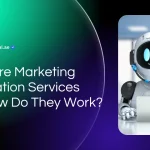
- July 25, 2025
- techAdmin
- 0
In the landscape of modern business operations, the hum of servers and the click of keyboards are increasingly accompanied by the silent, powerful processing of algorithms. Service management, once a domain defined by human-led processes, ticket queues, and reactive problem-solving, is undergoing a profound transformation. Artificial Intelligence is the driving force behind this transformative shift. The question is no longer if AI will impact service management, but why the trend of AI In Service Management has accelerated into a core strategic imperative for enterprises globally. This shift isn’t merely about automation; it’s a fundamental reimagining of how services are delivered, managed, and optimized, moving from a model of reaction to one of prediction and preemption.
This deep dive explores the technological drivers, business benefits, and strategic applications fueling this trend. We will analyze how AI is not just enhancing but redefining efficiency, user experience, and value creation in the service management ecosystem. As we unpack these layers, we will also reference the holistic approach of industry leaders like Zabtech Digital, who are instrumental in architecting the integrated digital ecosystems necessary for AI to thrive.
The Core Drivers: Addressing the Inherent Limitations of Traditional Service Management
Traditional service management frameworks, while foundational, have struggled to keep pace with the exponential increase in complexity and volume of the digital era. Three core challenges have paved the way for AI’s ascendance:
- The Scalability Dilemma: Human-powered service desks have a finite capacity. As a business grows, its service demand scales, but hiring support staff at the same rate is economically unsustainable and operationally inefficient. This creates bottlenecks, increases wait times, and degrades the user experience.
- The 24/7 Expectation: In a globalized, always-on digital economy, users and systems require support around the clock. Maintaining a 24/7/365 human-staffed service desk is resource-intensive and prone to inconsistencies across different shifts and regions.
- The Data Overload Problem: Modern IT environments generate a torrent of data—logs, alerts, performance metrics, and user feedback. For a human agent, sifting through this ocean of data to find the root cause of an issue is a monumental, time-consuming task. Valuable insights that could prevent future incidents often remain buried.
AI directly addresses these limitations. It offers infinite scalability, operates tirelessly 24/7, and possesses the computational power to analyze vast datasets in real-time, turning raw data into actionable intelligence.
The Technological Pillars: What “AI” Means in This Context
When we discuss AI In Service Management, we are referring to a suite of specific technologies working in concert. The primary pillars include:
- Natural Language Processing (NLP): This is the technology that allows machines to understand, interpret, and generate human language. In service management, NLP powers intelligent chatbots that can understand user queries in natural language, sentiment analysis tools that gauge user frustration from a support ticket’s text, and language translation for global support.
- Machine Learning (ML): ML models are the predictive engines. By training on historical ticket data, system logs, and resolution notes, ML algorithms can learn to categorize and route new tickets automatically, predict future incidents based on subtle warning signs, and recommend the most likely solution to an agent, dramatically reducing resolution time.
- Intelligent Automation (IA) and Robotic Process Automation (RPA): Automation is where AI’s insights are put into action. IA and RPA can handle repetitive, rules-based tasks like password resets, user account creation, system reboots, and software installations without human intervention. This allows experienced technicians to concentrate on more advanced, strategic tasks that deliver greater value.
These technologies are not siloed; their power is amplified when they are integrated. A user might interact with an NLP-powered chatbot, which then uses an ML model to diagnose the issue and triggers an RPA bot to execute the fix, creating a seamless, end-to-end automated resolution workflow.
Key Applications Transforming the Service Landscape
The practical application of these technologies is where the trend of AI In Service Management becomes tangible. Here are some of the most impactful use cases we are observing across industries:
- Intelligent Ticket Triage and Routing: AI systems can instantly analyze incoming tickets (via email, portal, or chat) using NLP to understand the content, urgency, and sentiment. ML models then automatically categorize the ticket, assign it a priority level, and route it to the correct support team or automation workflow, eliminating manual triage delays.
- Predictive Maintenance and Proactive Support: This is a paradigm shift from reactive to proactive service. By analyzing real-time data from servers, applications, and network devices, AI can detect subtle anomalies that precede a failure. It can predict that a server’s hard drive is likely to fail with a high probability, say P(failure∣sensor_data)>θ, where θ is a predefined risk threshold. The system can then automatically create a ticket to replace the component before it fails, preventing downtime altogether.
- AI-Powered Chatbots and Virtual Agents: Modern virtual agents are far beyond simple FAQ bots. They are sophisticated conversational AI platforms that can guide users through complex troubleshooting steps, integrate with backend systems to process service requests (e.g., “request access to the sales database”), and escalate seamlessly to a human agent with full context if needed.
- Knowledge Management and Agent Assist: AI is revolutionizing how knowledge is managed and utilized. It can scan all existing documentation, past tickets, and external resources to provide human agents with context-aware solution recommendations in real-time. As an agent types a ticket response, an AI assistant can suggest relevant knowledge base articles or resolution steps, ensuring consistency and speed.
- Performance Analytics and Root Cause Analysis (RCA): AI excels at identifying patterns in complex datasets. It can analyze thousands of alerts and events surrounding a major incident to pinpoint the most probable root cause in minutes—a task that could take a team of engineers hours or even days. This accelerates recovery and helps build more resilient systems.
The Zabtech Ecosystem: Enabling Enterprise-Grade AI Implementation
Integrating AI into Service Management requires more than just out-of-the-box solutions—it demands careful planning and customization. It requires a robust, integrated, and well-architected technological foundation. This is where the comprehensive expertise of a technology partner like Zabtech Digital becomes critical. Their approach recognizes that AI is the capstone of a well-built digital structure.
The journey begins with foundational ICT Solutions that ensure reliable connectivity and infrastructure performance, which are the bedrock for any advanced technology. To handle the immense data processing and scalability demands of AI, a flexible and powerful Cloud Solution is essential, providing the on-demand computational resources required for machine learning models. The user-facing elements of AI, like chatbots and service portals, are brought to life through sophisticated Web/ App Development, creating intuitive and engaging interfaces.
However, building these tools is only half the battle. To maximize their impact, they must be discoverable and effectively promoted. A cohesive Digital Marketing strategy ensures that users are aware of and know how to use the new AI-powered support channels. The visibility of these service portals in search results is paramount, which is where expert Search Engine Optimization (SEO) plays a crucial role in driving organic traffic and adoption. Furthermore, engagement can be fostered through proactive Social Media Marketing (SMM), using these platforms as a channel for AI-driven customer support and announcements.
To ensure that internal teams can leverage these powerful new systems, Zabtech facilitates knowledge transfer through targeted Training programs and expert-led Webinar sessions, demystifying AI and empowering staff. The underlying infrastructure for all this is often powered by Virtualization, a technology that optimizes resource utilization and provides the agility needed for dynamic AI workloads. Increasingly, these powerful capabilities are delivered via a SaaS (Software as a service) model, which lowers the barrier to entry for businesses, offering access to cutting-edge AI tools without the high initial costs associated with hardware acquisition and software development.This holistic, 360-degree approach is what separates a successful AI integration from a failed one.
Zabtech’s Competitive Advantage in Internet Marketing Services
At Zabtech, we’ve developed a distinctive approach to internet marketing service delivery that maximizes client value while maintaining cost efficiency:
1.Integrated Service Delivery
Our comprehensive approach combines technical expertise with strategic insight, delivering coordinated campaigns that leverage synergies between different marketing channels while avoiding the inefficiencies of fragmented service delivery.
2.Technology-Forward Solutions
We invest heavily in advanced marketing technologies and automation platforms, enabling us to deliver superior results while maintaining competitive pricing through improved operational efficiency.
3.Transparent Performance Measurement
Our commitment to detailed performance tracking and transparent reporting ensures clients understand the value delivered by their marketing investments, supporting informed decision-making and strategic optimization.
4.Industry-Specific Expertise
Our team’s deep understanding of various industry verticals enables us to deliver specialized strategies that reflect unique market dynamics and customer behaviors, maximizing campaign effectiveness within specific sectors.
Recommendation:
ZabTech supports you with over 30 years of training experience, and further assists with IT services, digital marketing, ICT, cybersecurity, and mobile app solutions across the UAE.
To know more about IT services, digital marketing services, ICT solutions, Cyber security solutions and mobile apps, please Contact Zabtech IT Solutions,
Zabtech offers Digital Marketing Solutions In Dubai,
For further information please contact:
WhatsApp number: +971 506963432
Email: support@zabtechdigital.ae
Website: https://zabtechdigital.ae/
Facebook: https://www.facebook.com/ZABTechITSolution
LinkedIn: https://www.linkedin.com/company/zabtech-it-solutions/
Twitter: https://twitter.com/Zabtech_Digital
Instagram: https://www.instagram.com/zabtechitsolutions/
To know more about Digital Marketing Solutions In UAE,
Conclusion
The rapid adoption of AI In Service Management is not driven by hype, but by undeniable value. It represents a strategic response to the escalating demands of the digital world, offering a clear path toward greater efficiency, superior user experiences, and significant cost savings. By automating the mundane, predicting the future, and empowering human agents with machine intelligence, AI is elevating the role of service management from a reactive cost center to a proactive, value-driven engine of business enablement.
The future will see even deeper integration, with generative AI crafting empathetic and technically accurate support responses, and hyper-automation connecting service management directly into DevOps and business process workflows. For organizations looking to not just keep pace but lead the way, the time to invest in an AI-driven service management strategy is now. Partnering with experts like Zabtech Digital, who understand the full technological stack from infrastructure to user engagement, provides the strategic guidance and technical prowess needed to navigate this exciting and inevitable transformation.



